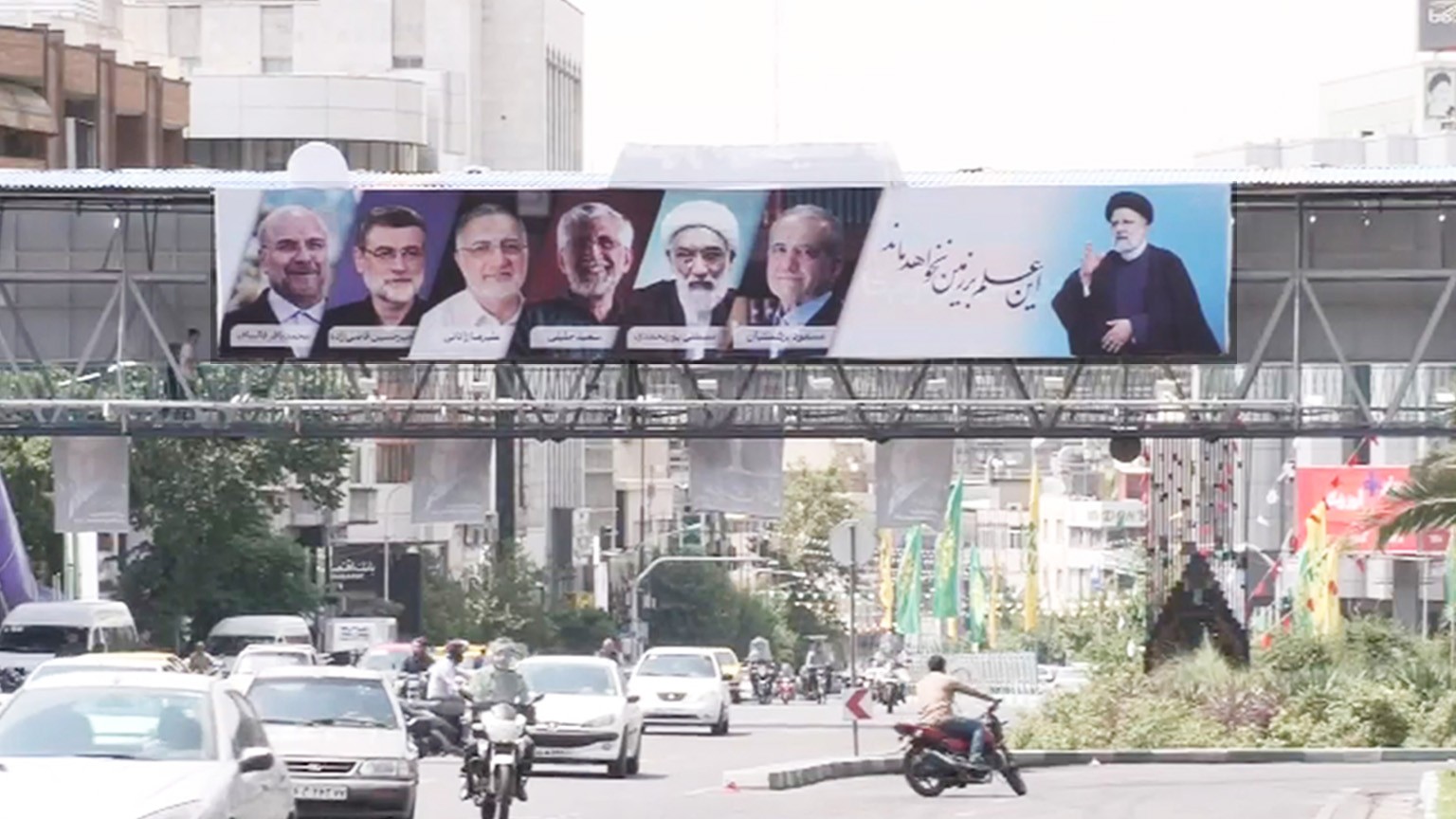Saeed Jalili
Saeed Jalili, a frontrunner backed by scholars of Islamic law and many lawmakers, favors a hardline stance.
Under the administration of President Mahmoud Ahmadinejad, Jalili served as deputy foreign minister.
As secretary of the Supreme National Security Council from 2007 to 2013, he was responsible for international negotiations over Iran's nuclear program and became known as a tough negotiator with little willingness for compromise with the West.
During the campaign, the 58-year-old Jalili has claimed Iran has managed to overcome economic sanctions on its own. He stressed that he can further improve the economy by deepening relations with emerging countries even though Iran remains at odds with the West.
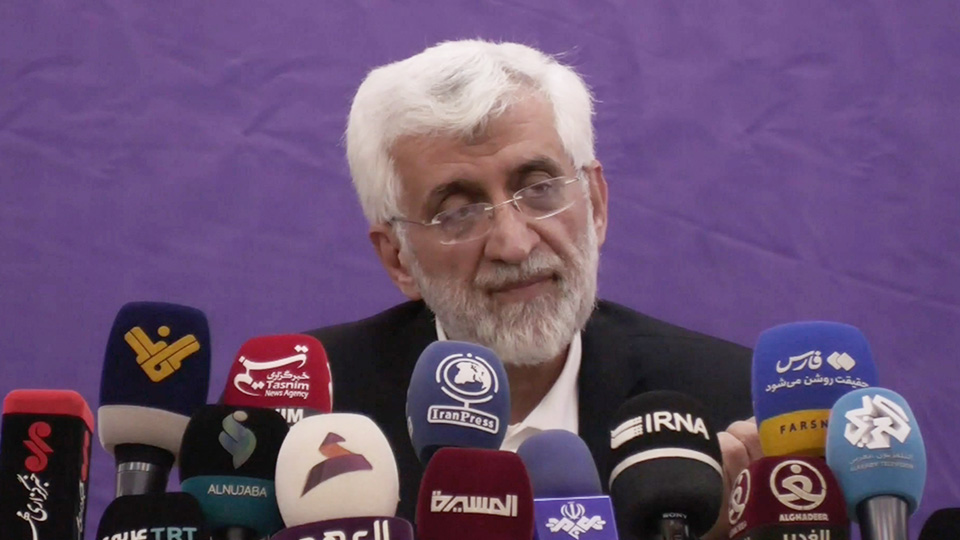
Mohammad Baqer Qalibaf
The other hardliner battling for support among conservative voters is Mohammad Baqer Qalibaf, 62.
He was a pilot in the Islamic Revolutionary Guard Corps, an elite military unit, and also served as air force commander of the Corps. He later became chief of police and the mayor of Tehran.
Qalibaf has served as the chairman of the Iranian parliament since 2020, and supported the management of President Raisi's administration. Raisi was also a conservative hardliner.
During the campaign, he has pledged to carry on and further the Raisi administration policies. He has also said his foreign policy will place importance on relations with neighboring countries such as Arab nations.
However, he has also shown he is open to a flexible stance regarding the West, saying that negotiation is needed to lift economic sanctions. As a result, he has gained support from the business community.
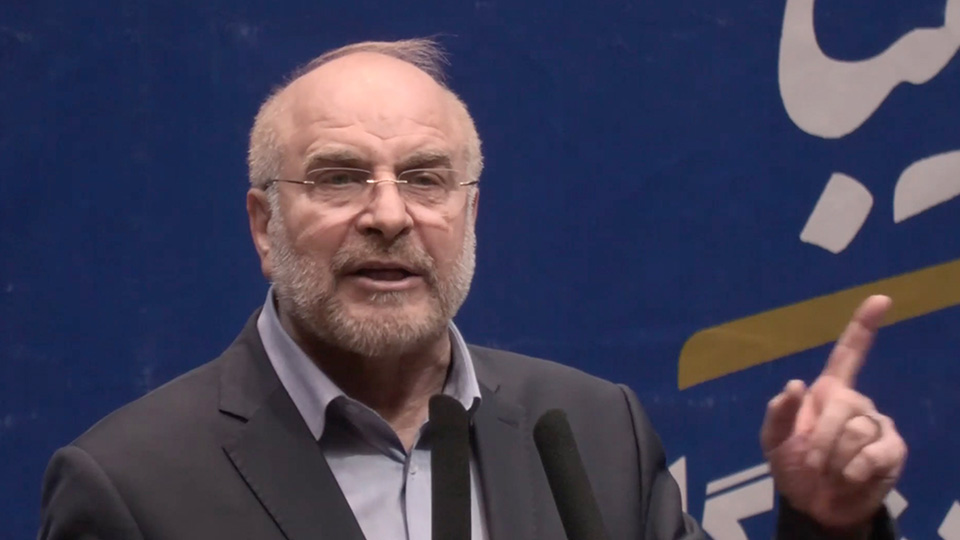
Masoud Pezeshkian
Masoud Pezeshkian, a heart surgeon, is the only reformist who has been allowed to run after other candidates were disqualified.
He joined the Cabinet as health minister under reformist President Mohammad Khatami and served there for several years. He later became a deputy speaker of parliament under the moderate President Hassan Rouhani.
During the election campaign, he has received support mainly from reformists, including former President Khatami, former President Hassan Rouhani, and Javad Zarif, who served as foreign minister under Rouhani.
Pezeshkian, 69, has placed priority on lifting economic sanctions and is calling for improving relations with the West. He also takes a softer stance on the hijab, the scarves that women are required to wear in public areas, and is trying to win over voters unhappy with hardline conservative policies.
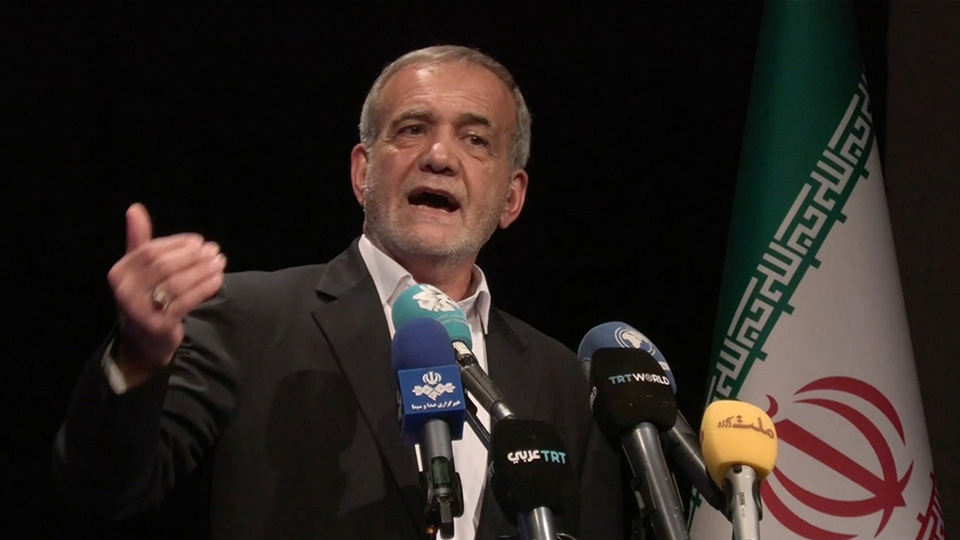
Two candidates drop out just before election
The field of candidates was initially six but two candidates withdrew on the eve of the landmark vote.
Mostafa Pourmohammadi, a former interior minister, is the fourth candidate.
Voter views
NHK spoke with voters in Tehran ahead of the election.
A 35-year-old female teacher supports the conservative hardliner Jalili. She said that she wants the country to make a leap forward economically and aim for a proud Iran in diplomacy.
A 56-year-old woman who supports conservative hardliner Qalibaf said she was hoping for continuation of the Raisi administration policies. She stressed that she wants Iran to continue to have an international presence.
Meanwhile, a 56-year-old female public accountant who supports reformist Pezeshkian said she feels Iran isn't hostile to other nations. She would like the government to improve relations with other countries and get the economic sanctions lifted. She wants the government to change its foreign policy, which is at odds with the West.
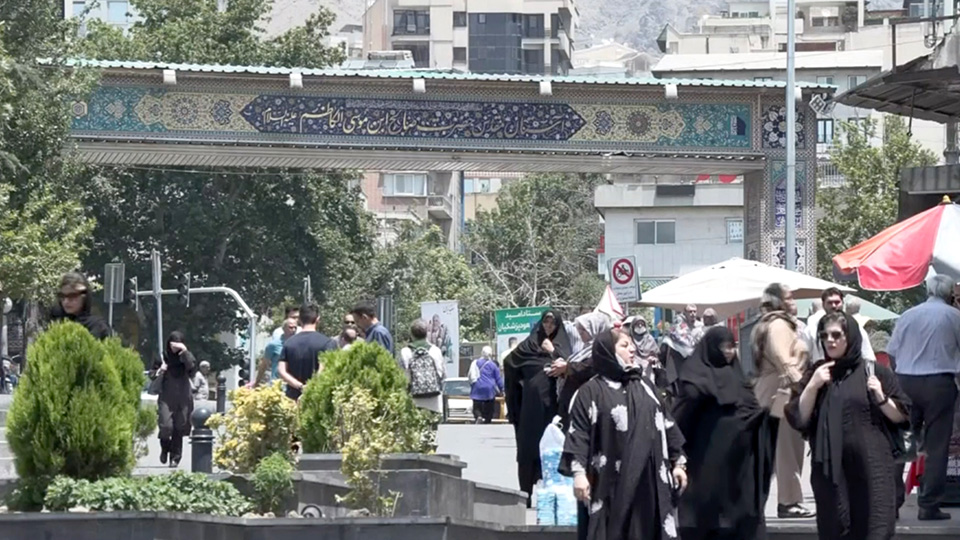
In the previous presidential election in 2021, turnout was 48.8 percent, the lowest since the establishment of the Islamic regime in 1979. Some voters say they don't plan to cast a vote this time.
A 44-year-old shop owner said nothing will change even if he votes, while a 32-year-old female lawyer said there is no room for democracy to be born under the dictatorship. She added that the election is a sham and she can't expect any change regardless of who the president will be.
Analysis: What to expect from Iran's next president
NHK World talked to Keio University professor and Middle East expert Tanaka Koichiro. The interview has been edited for brevity and clarity.
Q: This election is said to be a three-man contest. But Iran is also a country where Ayatollah Ali Khamenei, the Supreme Leader, holds the real power. Can the president really change the country's diplomatic stance?
Tanaka Koichiro: Well, it's quite true what you said. But there are certainly ways left for the president when he conducts his foreign policy. And one of the issues here is how to deal with the United States. Of course, they cannot actually mend the relationship with the US because it's also correlated with what the US is considering, or how they regard Iran as potential ally or potential threat.
But here, as I said, the presidents are able to say things and also draw a foreign policy line as long as it does not totally contradict what the Supreme Leader says.
But in the end, yes, the Supreme Leader does have the final say, but there are certain issues that the president can initiate.
Q: In the last election three years ago, the voter turnout was a record low at 48%. Can we expect a higher turnout this time?
Tanaka: The lower voter turnout was caused because the system did not allow a real contest among the candidates. That happened in 2021.
Well, this time there is a reformist candidate who is quite relatively doing okay so far. So there may be a real contest amongst the three. If that is the case, and if people considered that they could change something, at least the policies that they face, or the difficulties they face, through the elections, they will be able to vote.
But it all boils down to the point whether the system is going to allow a sort of free environment for the contenders.
Q: How will the next President approach the major challenges that are of great interest to the world, namely the conflict in Gaza and Iran's nuclear issue?
Tanaka: Well, issues over Gaza are more related to military so the president has very little say over it. So it won't make much difference who becomes the president.
When it comes to the nuclear issues, the nuclear development also remains in the power of others, not only the president. So again, it is difficult to change course.
But at least with regards to nuclear negotiations, there will be room where the presidential candidate like Mr. Jalili would give a very tough show, tough stance against interlocutors. And eventually give little room for any concession, and that's unlikely to move anything forward or any sort of meaningful change.
Whereas for candidates like Mr. Ghalibaf and also Mr. Prezeshkian who are ready to negotiate but also are telling the world, not only the Iranians, that there is room - sort of a compromise: if their conditions are met, meaning that if the sanctions are to be lifted or eased, yes, Iran would also curtail its nuclear developments. So there's room for them if they are really elected as president.
Q: And as we've been reporting, there was hot debate in the US as well. Is there going to be any change between the two countries, with relations between the two countries?
Tanaka: Well, I'm hoping that they would change matters. But the problem is it's not only about Iran when it comes to trying to mend relations with Iran and the United States. It's also on the side of the US. Whether the president or the administration is ready to deal and engage with Iran, not just solely keep on containing them and placing more sanctions against them. So it all boils down to the point of how the US also is going to see Iran under the next president.
Keio University ProfessorTanaka Koichiro spoke with NHK World on June 28.
